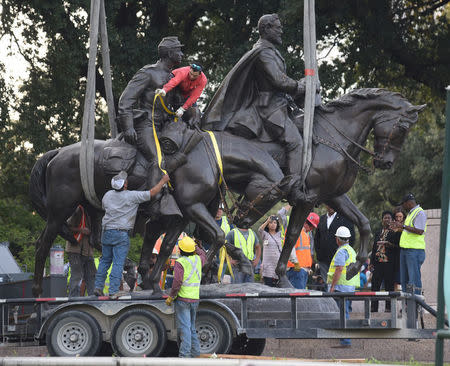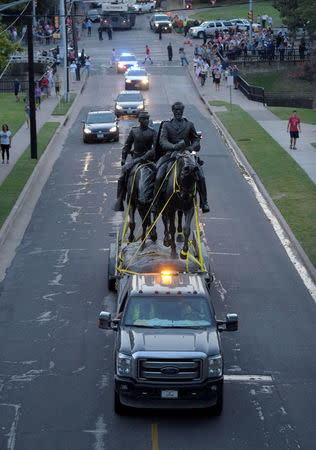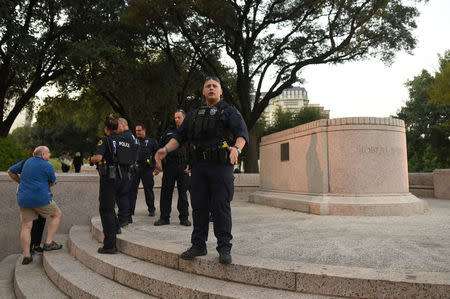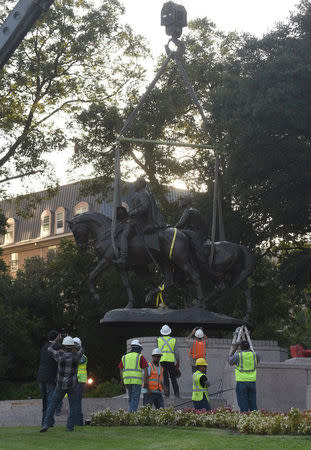Dallas removes Robert E. Lee's statue from city park
By Rex Curry
DALLAS (Reuters) - Workers in Dallas removed a statue of Confederate General Robert E. Lee from a park on Thursday, with police on hand to provide protection after the mayor said the monument was a symbol of injustice and the city council voted to bring it down.
The removal came a month after a rally where white nationalists angered at the planned removal of a Lee statue in Charlottesville, Virginia, clashed with counter-protesters. One woman was killed during the Aug. 12 protest, when a suspected white nationalist crashed a car into anti-racism demonstrators.
The violence in Charlottesville revived a national debate about whether symbols of the pro-slavery Confederacy of the American Civil War represent heritage or hate. Confederate monuments dot the U.S. landscape.
The 14 foot- (4.3 meter) tall statue in Dallas of Lee on horseback riding with an unnamed soldier has been at a city park since 1936, with then President Franklin D. Roosevelt on hand for its dedication.
Workers in yellow vests took down the Lee statue and hauled it away on a trailer pulled by a pick-up truck, during an operation lasting about four hours, according to a Reuters Witness. Dozens of bystanders watched while police, including some officers armed with rifles, stood guard.
Melinda Gutierrez, a spokeswoman for Dallas police, said in an email she had received no reports of any violence during the removal operation.
A city task force on Confederate monuments is set to give a recommendation next month on what will be done with the statue. Lee Park, where the statue stood on a grassy hill near downtown, may also be renamed, city officials said.
Earlier this month, a U.S. judge dismissed a lawsuit from the Sons of Confederate Veterans, who were seeking court protection to keep the statue in place in the park.
Opponents of Confederate memorials view them as an affront to African-Americans and ideals of racial equality. But supporters of such symbols argue they represent an important part of history, honoring those who fought and died for the Southern states that sought to secede in the Civil War.
The drive by civil rights groups and others to do away with Confederate monuments gained momentum after an avowed white supremacist murdered nine African-Americans at a Charleston, South Carolina, church in 2015.
New Orleans and Baltimore are among the municipalities that have removed Confederate monuments this year.
(Additional reporting by Jon Herskovitz in Austin and Alex Dobuzinskis in Los Angeles; Editing by Jacqueline Wong)








